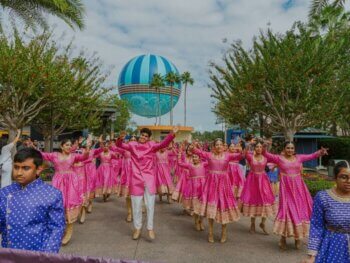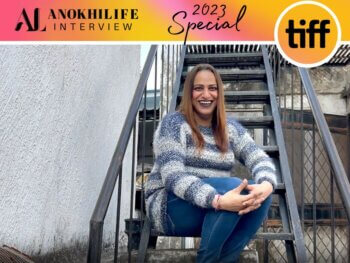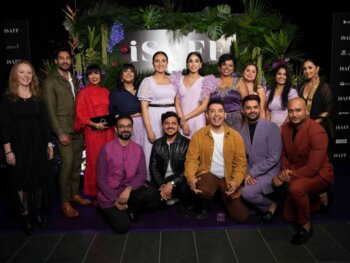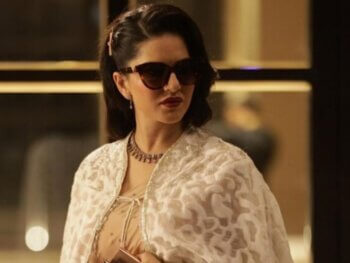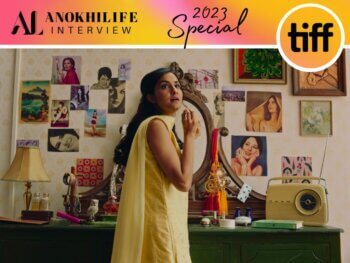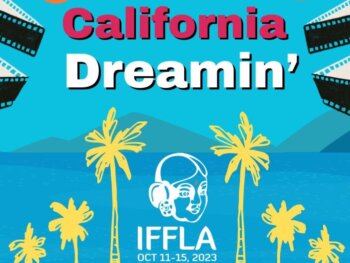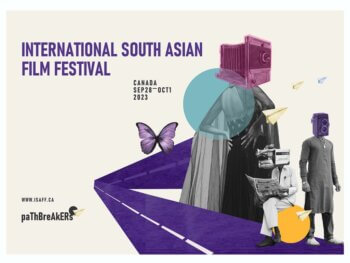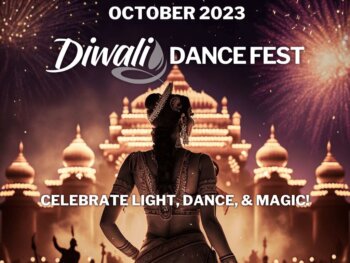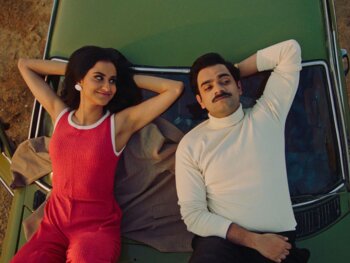When It’s So Much More Than A Love Triangle: Anurag Kashyap and Abhishek Bachchan Talk About “Manmarziyaan” (Husband Material)
Entertainment Jan 18, 2019
The Toronto International Film Festival can easily pass as director Anurag Kashyap’s second home. Coming off of his fifth film’s world premiere this past September, this time he came with his cast of Manmarziyaan (Husband Material), including Abhishek Bachchan, Taapsee Pannu and Vicky Kaushal. During their 30-hour stop in Toronto (as they needed to fly back for the Mumbai premiere), we chatted about the brutal honesty of the film, why it’s more than just a love triangle and the importance of being in a judgement-free zone.
Hina P. Ansari: Anurag, you have quite the storied history with The Toronto International Film Festival. Tell me about your affinity for TIFF?
Anurag Kashyap: It’s a great festival to watch movies. For me, I come here as a cinephile to watch movies. So every time my film gets accepted it’s a great chance for me to extend my trip and stay an watch movies. I am going to watch more movies. I have my list. (laughs).
HPA: Abhishek, what is it about this film that motivated you to be a part of it?
Abhishek Bachchan: It’s predominantly about two things:
I like the idea that for a change —and possibly for the first time at least to my knowledge — that you had a leading lady who was not going to be judged for her behaviour. Back home, especially in India and Indian society it’s a new thing —sadly— but it is. I don’t know how revolutionary a thought it is in the West, but for somebody to be free spirited, and for the two men in her life who love her, for different reasons, not to judge her and expect her to change is quite new. So I liked that.
2. When I got to know that Anurag would be directing, I knew that he would do something very unique with it. He has a very distinctive voice and I just instinctively knew he was going to take this film and treat it differently. A love triangle is a love triangle is a love triangle. The story is the same. The only way you are going to make it different is if you treat it differently. And I knew that he was going to do just that.

HPA: When I came out of the theatre I realized that I didn’t see one person as the hero and other as the one anti-hero etc. Everyone was on an equal playing field emotionally for me. Which made me think that this is where the audience member may leave with their own perspectives on which character they best related to.
AB: You hit it right on the head. Because that was the plan. That was the form that Anurag wanted to take. He said, people should not come out of the theatre having judged on any of the three main characters. They shouldn’t judge Rumi for being promiscuous, or being frivolous—not in a bad way—just in a sense that she loves somebody and now she doesn’t and that’s it. You shouldn’t judge Vicky for being indecisive or irresponsible. That’s just the way he is. You shouldn’t judge Robbie for in a sense, imposing himself on Rumi even though she’s in love with somebody else. That’s the message: What the heart desires, the heart desires. Hence the title.Why do we think it’s important to judge somebody for how they feel. Judge yourself for how you feel. You don’t need to judge somebody else. You don’t have that right.
HPA: What do you hope the audience will take away from this film?
AB: I hope that they relate to it. That’s the sole intention that it should be a relatable film. I really do feel that the younger generation will relate to it, with the themes the attitudes and the complexities of the film.

HPA: The film really makes a social commentary on being judgemental.
AB: Yes. what I liked is that nobody comes out of the film with judgement. You don’t need to pass judgement on it, or pass comment on it.
AK: It’s a coming of age film. I just wanted to make the film relatable. For me my film making process as for myself, I was growing with the characters (laughs). I think I was less mature before the film and in the process grew up.
AK: You always grow, there’s no end to growing up. You are always learning. (laughs).
HPA: So, what did you learn?
AK: All sorts of things. We will sit down, discuss, argue and get into fights. You evolve. You get points of views. Everybody would bring their own interpretations of things.If I’m going to interpret for all of them then the film would be so unidimensional.

HPA: In terms of cinematography, I loved all the authentic shots of the foods of Amritsar. It was woven into the film quite nicely.
AK: That’s Amritsar. Yes Kesar ka Dhaba. That food we lived off courtesy of Mr. Abhishek Bachchan. He was our food guide. (laughs)
HPA: I have to ask, what’s the deal with the twins?
AK: It’s the duality of the characters. If I would have said that’s the reason I’m bringing the twins on, before filming started, [which was] to show the duality of the characters, [Taapsee, Vicky and Abhishek] would have made my life miserable. (laughs) So I just said they are just dancers. Now I can talk about it. (laughs).
AK: The twin girls came from LA but they had to sit for their exams, so they could only come for seven days. We couldn’t take them to Kashmir. So I luckily I found the twin men.
HPA: It reminded me of the band that would randomly pop up in There’s Something About Mary.
AK: Yes! I did it before as well in Dev D. But before me, somebody else did it. Anurag Basu did it in Life In A…Metro. He had these singers. That impacted me so much. I used that as an element and turned it into dances in Dev D. and here I took it further. I was impacted by Basu. Maybe he was inspired by someone else, but I was inspired by Basu.
HPA: I found the honesty of this film quite refreshing.
AK: This film is honest. You don’t need to be bold to speak to what it is.
HPA: Yes, also I kept thinking about the film afterwards.
AK: This film I think, will also have its own journey. We are so conditioned to watch a movie a certain way. Some will see it as a love story, or they are fans watching the movie. Or they are fans of music. Slowly the film probably will mean much more. I just feel that within me.
AB: You come and you let the film seep into you in a very subconscious way it works on you.
HPA: It percolates.
AK: Yes, it percolates. You’ll start seeing beyond what’s the obvious. You’ll start seeing this more than just a love triangle. It’s not really about that. It’s about three people figuring themselves out.
Main Image Photo Credit: www.tiff.net
Hina P. Ansari
Author
Hina P. Ansari is a graduate from The University of Western Ontario (London, Ontario). Since then she has carved a successful career in Canada's national fashion-publishing world as the Entertainment/Photo Editor at FLARE Magazine, Canada's national fashion magazine. She was the first South Asian in...



































































































